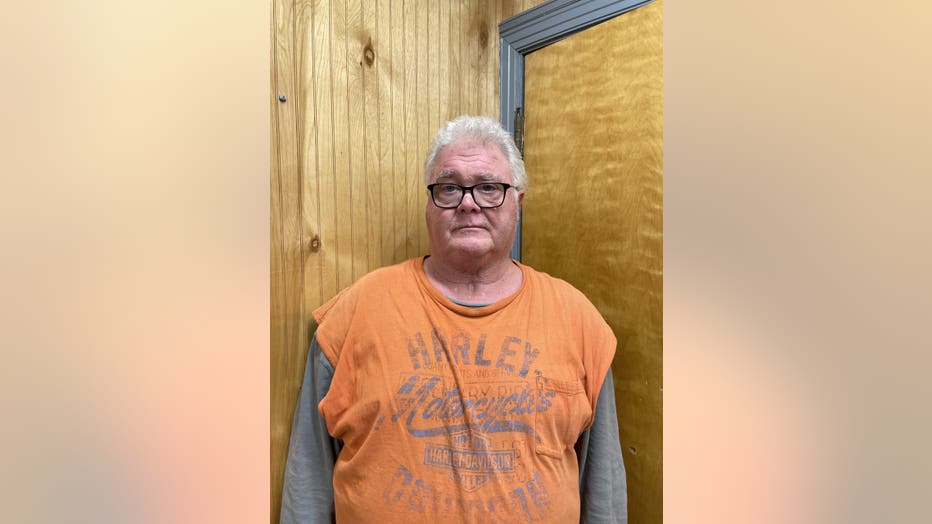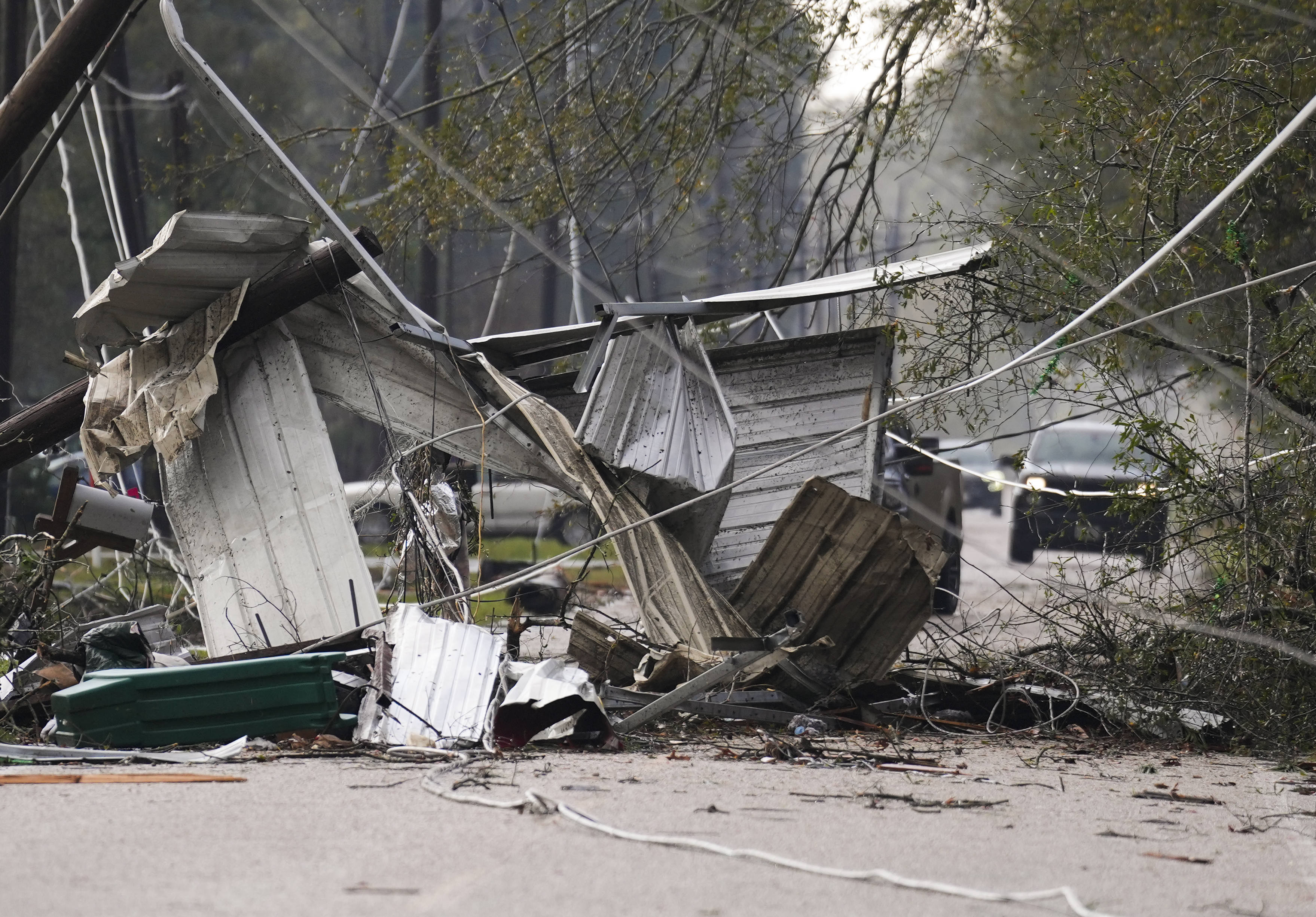Illinois
Eye On Illinois: Have you felt relief from grocery tax suspension?
:quality(70)/cloudfront-us-east-1.images.arcpublishing.com/shawmedia/36DDA6DFNNG35PEMZXVFSQWU7U.JPG)
Tennessee was great, thanks for asking. A little rainy, but we played eight baseball games in five days, lost a silver championship game by one run and I’m not the dad who lost his minivan key fob on the Wild Eagle at Dollywood (although I did give him a ride home from the park and back the following night when it miraculously resurfaced).
I stocked up before the trip at the nearby warehouse club, where I ran up a bill of $277.82 and paid all of $6.70 in sales tax (on diet cola, bird seed and some clothes). If my next restocking run doesn’t happen this week, the total cost for the same items would increase as the yearlong suspension of Illinois’ 1% grocery sales tax expires at midnight Friday.
Our Sunday night visit to the Kroger in Pigeon Forge cost us $165.29 and $12.21 in sales taxes. We mostly purchased groceries (coded B on the receipt) but a few toiletry items (coded T) and altogether the tax was about 7.4% on top of the cost of goods. We were too early for Tennessee’s three-month suspension of the 4% sales tax as applied to groceries, which starts Aug. 1.
A midweek stop at Food City (my kids eat a lot of food) had some different receipt codes: $57.67 of groceries and $3.89 in tax, $33.04 of general merchandise (food storage containers, dishwasher detergent) with a tax of $3.22 and then a dime tax on the $9.99 take-and-bake pizza that was almost too big to bake in the rental unit’s oven.
We fueled the car and bodies in Indiana to and from Illinois. We encountered the 7% statewide sales tax at a Portillo’s in Merrillville and a 9% bump on coffee and milkshakes in Lebanon, where both the city and Boone County get 1% on each transaction. Hoosier gas receipts, like those in Illinois and Tennessee, don’t provide any tax breakdowns.
The biggest individual hit was a 10.75% tax on a $61.94 bill for dinner for four at the Sunliner Diner in Pigeon Forge. That’s a pretty good haul, especially considering the other 38 people in our traveling party who settled their own checks.
When Illinois enacted the yearlong grocery tax suspension, leaders estimated savings of $400 million. Just looking through a week of vacation receipts is making my brain hurt, so I can’t imagine trying to calculate the effect on my family budget. It’s clearly more than the $10 we saved when lawmakers deferred a gas tax hike for six months last year, but taking the state’s guess divided by its population we’re still saving only about $32 per person, about 62 cents each week.
Have you felt the relief?
• Scott T. Holland writes about state government issues for Shaw Media. Follow him on Twitter @sth749. He can be reached at sholland@shawmedia.com.

Illinois
'Our world has been shattered': Family of fallen Illinois trooper speaks out after fatal I-55 crash

Illinois state trooper killed by passing vehicle just before Christmas
An Illinois State Trooper was killed Monday night in Will County when he was struck by a car while removing debris from an expressway.
WILL COUNTY, Ill. – The family of Illinois State Trooper Clay Carns, who was struck and killed on I-55 near Channahon just before Christmas, has expressed gratitude for the support they’ve received during this tragic time.
Carns died Monday night after being hit by a vehicle while removing debris from the expressway.
On Saturday, his family issued the following statement:
Pictured is Trooper Carns with his two children, Ally and Gray, and wife Meghan. (Illinois State Police)
“The Family of Trooper Clay Carns mourn the loss of their treasured husband, father, son, brother, uncle, and friend. We could never begin to thank law enforcement nor the thousands from our community who have reached out to us to express their love and support.
“To the public, Clay became a hero on December 23, 2024, when he was killed in the line of duty. To his family, he has always been a hero.
“Our world has been shattered, and we will never be the same. But we take comfort in knowing that he lived his life with such purpose, he loved his family and friends fiercely, and he took great pride in his work.”
What happened
The crash occurred on Monday, Dec. 23 – the very same day that was designated as “Scott’s Law Day” in Illinois, which reminds driver’s to move over and slow down when approaching emergency vehicles.
At around 10 p.m., Carns was clearing debris from the southbound lanes of I-55 near Channahon when he was struck by a vehicle.
He was transported to Ascension Saint Joseph Medical Center in Joliet, where he later died.
The driver, identified as 69-year-old John Fleet of Wilmington, was arrested and charged with a felony violation of Scott’s Law.

ISP arrested John Fleet, 69, of Wilmington, after the crash.
Trooper Carns served with the Illinois State Police for 11 years. He was a married father of two young children.
Funeral services announced
Services for Trooper Carns will be held at Parkview Christian Church, located at 11100 Orland Parkway in Orland Park.
- Visitation: Thursday, Jan. 2, from 1 p.m. to 8 p.m., with a first responder walkthrough at 6 p.m.
- Funeral Service: Friday, Jan. 3, at 10 a.m., followed by a private interment.
How to support the family
A GoFundMe campaign has raised over $195,000 as of Saturday for Trooper Carns’ family.
The fund has a goal of raising $250,000 and has received 2,000 donations so far.
To learn more about the campaign, click here.
RELATED STORIES:
Illinois
With so many moving parts, the Illinois basketball team hires a general manager

The Illinois basketball team is in the middle of a huge season for the program, as this squad is poised for great heights.
Despite dropping two out of the last four contests, the Illini find themselves back in the AP Top 25 at No. 24 in the nation. This ranking is impressive considering we are only 8-3 overall. The three losses aren’t bad, and Illinois has also beaten a good Missouri program and ranked Arkansas and Wisconsin squads.
While Brad Underwood is trying to develop talent and lead this team to the promised land, there is clearly a need for continuous program development on and off the court. On Friday night, the Illini “front office” got a little stronger.
According to NBA reporter Jake Fischer, Illinois is hiring Neel Ganta as the new general manager for the program. The Illini managed to snag him away from the Denver Nuggets front office.
Sources: Neel Ganta is departing the Denver Nuggets’ front office to become the new general manager of Illinois men’s basketball. Ganta returns to the Illini program after previously serving as a graduate assistant.
— Jake Fischer (@JakeLFischer) December 27, 2024
Neel Ganta should have an expansive role as the general manager of the Illinois basketball team
Ganta’s roots are actually with the Illini. He was a basketball analyst for the Illini from May 2019 to August 2020. After that, he moved into a graduate assistant role with the program from August 2020 to August 2021.
After his time with the Orange and Blue, Ganta then took a player development coordinator role with the Grand Rapids Gold, the G-League team of the Denver Nuggets. He then parlayed that position into multiple roles with the Nuggets, which ended with him being a pro scout.
Illinois is now bringing back Ganta, but what does the general manager title do for a college basketball team?
Well, this is the same situation that ESPN NBA insider Adrian Wojnarowski took with St. Bonaventure just months ago.
In the description of what Wojnarowski does for the Bonnies, it includes name, image, and likeness opportunities. This is huge in the college game today. It also sounds like Wojnarowski is the front face for the program when it comes to collectives.
This is what I imagine Ganta will do for the Orange and Blue. He will be out there wheeling and dealing. Ganta will likely be the one who brings in the money to help pay for the athletes to come to Illinois.
I like this addition to the Illinois basketball program. We needed someone out there bringing in the money so the coaching staff can focus on recruiting and on court issues.
Illinois
Police identify 2 men killed in Springfield Township crash

SPRINGFIELD TOWNSHIP, Ohio (WXIX) – Two men died in a Springfield Township crash Thursday afternoon, according to police.
On Dec 26 at 4:30 p.m., Springfield Police and Fire responded to the 9600 block of Daly Road for an auto crash, police say.
According to police, witnesses at the scene said they saw a head-on collision between a gray Toyota Sienna and a black Mercedes SUV.
Police say when they arrived on scene, the Toyota Sienna was on fire and both drivers had to be pulled from their vehicles.
The driver of the Mercedes SUV was identified as 55-year-old Jim Schneider from Cincinnati, who was pronounced dead at the scene according to a press release.
The driver of the Toyota Sienna was identified as 41-year-old Christopher Larkins from Springfield Township, the release says.
Police say Larkins was transported to UC Medical Center where he was later pronounced dead.
According to the Springfield Township Traffic Safety Investigators, it is believed that Larkins lost control of his vehicle going around a curve and drove left of center, hitting Schneider’s vehicle head-on.
Neither of the drivers is believed to have worn a seatbelt.
Officials believe speed was a factor and are working with the Hamilton County Coroner’s Office to determine impairment with a toxicology report.
See a spelling or grammar error in our story? Please click here to report it.
Do you have a photo or video of a breaking news story? Send it to us here with a brief description.
Copyright 2024 WXIX. All rights reserved.





















/cdn.vox-cdn.com/uploads/chorus_asset/file/24924653/236780_Google_AntiTrust_Trial_Custom_Art_CVirginia__0003_1.png)




/cdn.vox-cdn.com/uploads/chorus_asset/file/25672934/Metaphor_Key_Art_Horizontal.png)

